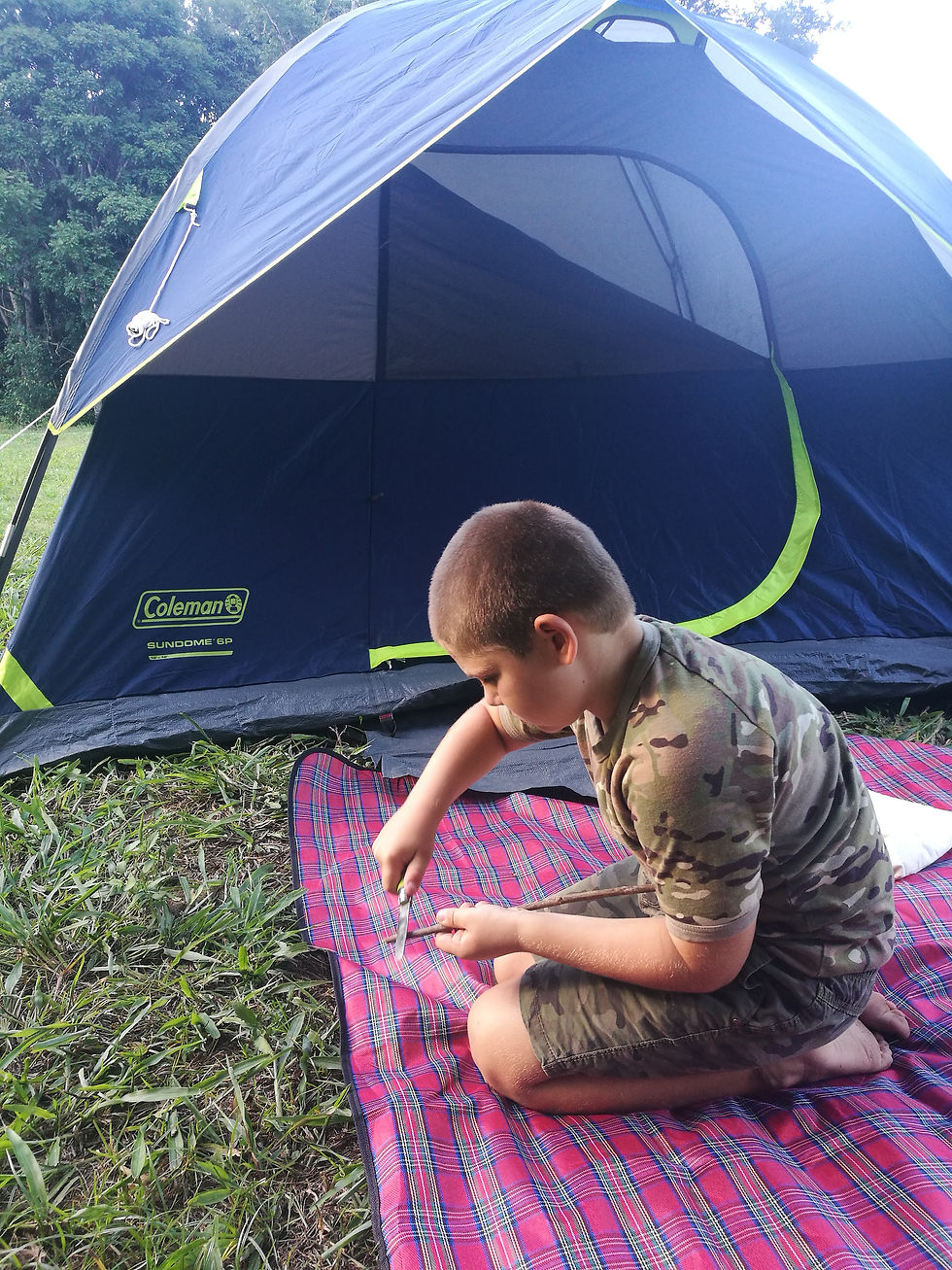Why I 'pick on' some kids I work with
- info1354829
- Jan 25, 2023
- 4 min read
Updated: Apr 7, 2023

Before you get up in arms, let's just set the record straight. When I say “picking on kids” I'm not picking on them for any of their disabilities or challenges. What I mean about picking on kids is stirring, playful banter etc; what brothers and sisters or dads do with their kids, and that sort of thing.
The reasons I do this is 1. is because it helps the kids grow and evolve.
And 2. it helps them learn how to block out external noises.
A perfect example would be when we're doing a balancing game. When kids are getting quite good at balancing, in particular when it’s quiet and they can concentrate, I’m not talking and they're focused. As soon as I start to taunt them and stir them a little bit, I can see their mind starts to ‘go everywhere’, they start to think about what I'm saying, and they lose their focus and control and consequently fall off.
I find providing a bit of gentle teasing and banter teaches them to block out that external noise, not to worry about what this big old, hairy guy is saying to them and just focus on their task at hand, and get better at balancing with noise and distraction.
In the real world - outside the safety, control and comfort of our sessions - there’s a lot of noise and many distractions that can cause problems. From walking or riding along a footpath with cars zooming by and all sorts of other noises going on, kids can lose their balance, get confused and feel anxious and scared. By gently reducing their sensitivities to noise and external distractions their internal focus and concentration ability increases and therefore their confidence and capability increase also.
To give you an idea of the type of stirring and ‘picking on ’I do with some kids, it’s usually something along the lines of telling them that they're “the world's worst balancer” and saying “boo, you suck”.
Very light and cheeky banter and quite often they’ll give it back to me in return so it's a bit of fun because there’s a little bit of back and forth going on which is normal in many relationships throughout a child’s life.
I find this helps them get more used to emotional sensitivities and limitations also, as many kids on the Autism Spectrum have challenges reading social cues and understanding humour. Doing what I do in a controlled and mindful way slowly allows them to better understand the fun and innocent banter and ‘picking on’ which they will no doubt experience throughout their schooling, university, and in the workplace.
There’s always a clear line as well. So if I say something that pushes them a little too far and few of their buttons, I’m very quick to apologise to them and have a conversation around it. So it's a really great conversation piece because I read their body language in their face and I will stop them and say, “hey, did that upset you? That I said that?” and if they say “yes”, I say “thanks for telling me, thanks for letting me know. I promise I won't ever say that again”.
And if they happen to say something that hurts or offends me in any way I’ll stop them and tell them “hey, that actually hurt my feelings” and we promise not to say that again.
We have a verbal agreement in place. Essentially a form of ‘Rules of the Game’.
From that, we create our game and we play.
So yes, I do pick on kids but no, it's not in a negative way. And it's all about building their resilience and so far by doing this I have seen great results with the kids I work with!
Feel free to watch the video on our channel about this:
Clint
Confidence Coach
Disclaimer:
This disclaimer governs your use of Autism & Beyond website and blog. By using this website, you accept this disclaimer in full. If you disagree with any part of this disclaimer, do not use this blog, this website or any affiliated websites, properties, or companies. We reserve the right to modify these terms at any time. You should therefore check back periodically for changes. By using this website after we post any changes, you agree to accept those changes, whether or not you have reviewed them.
All information and resources found here are based on the opinions of the author unless otherwise noted. All information is intended to motivate readers to make their own nutrition and health decisions after consulting with their health care provider. I am not a doctor, lawyer, psychiatrist, therapist, or your mother, and I don’t play one on the internet.
The author of this site encourages you to consult a doctor before making any health changes, especially any changes related to a specific diagnosis or condition. No information on this site should be relied upon to determine diet, make a medical diagnosis, or determine treatment for a medical condition. The information on this website is not intended to replace a one-on-one relationship with a qualified health care professional and is not intended as medical advice.
NO information on this site should be used to diagnose, treat, prevent or cure any disease or condition.
None of the posts and articles by Autism & Beyond may be re-printed without express written permission of the author. Autism & Beyond will respond to written requests to re-print parts of posts and excerpts/quotes (10% or less) may be reprinted with attribution as long as all links are left intact.









Comments